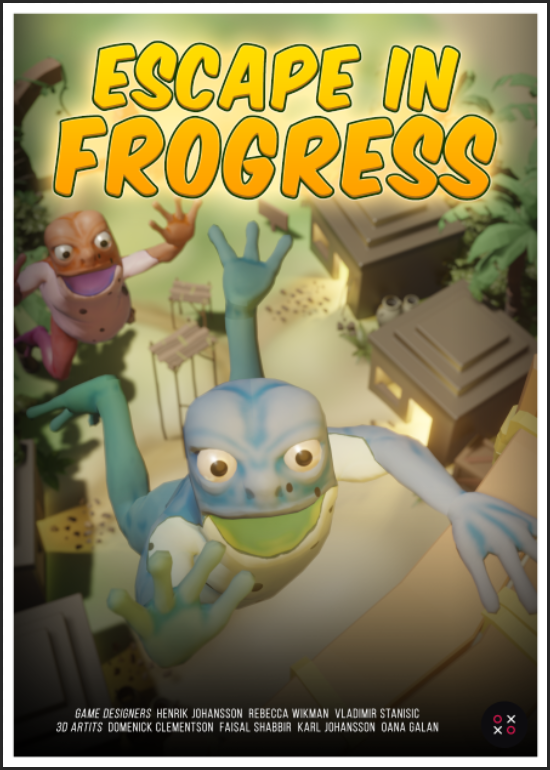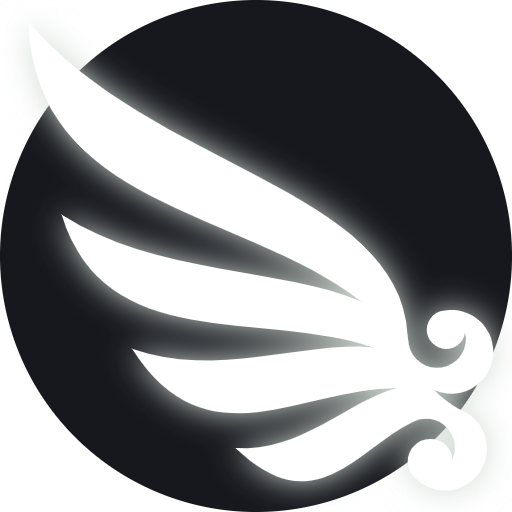
Escape in Frogress (2019)

Genre: Platformer survival race
Platform: PC
Engine: Unreal Engine 4
Development Time: Two weeks
My Roles:
- Concept designer
- Level designer
- Narrative designer
Deep in a lab nestled in the jungle, we encounter it: the African Goliath frog in its unnatural habitat. It promptly escapes.
Escape in Frogress is a two-player platformer with a survival aspect. Players control frogs that traverse a treacherous course by grappling through it with their tongues. The last frog flopping at the end of the course is the winner.
This game was my first project done with a team at Futuregames. We were three designers and four 3D artists. I was responsible for parts of the concept as well as the initial level designs.

Process
This project was made over two weeks with one check-in with the teachers in the middle of it. We were presented with two requirements: that the game be multiplayer and that the characters be made up of more than one part in some way (we chose a loose connection between the character's body itself and the tongue (a grappling hook)).
As a team, we sat down and settled on an idea by offering and discussing smaller concept pitches. The winning concept was a game about frogs, suggested by Oana Galan (a 3D artist). Once we had a base idea, we divided into groups for each aspect of a first playable, to be done at the end of the week. I was part of the level design and did the first blockout of it. I then worked with artists to continue developing the level.
In the second week, I was responsible for narrative (voice line script), playtesting, and creating the pitch for the project to be presented to the school. I was also the one who presented our pitch to the jury.
A New Experience
This was my first game project at Future Games. I was very familiar with the concept of creating a narrative and creative writing, and translating that to game production was something of a challenge, but one that was fun to take on. I've toyed with narrative concepts in games before, but that was more linear stories. This was a matter of flavour for an otherwise focused experience, and writing a script for it was a lot of fun.
The concept of a narrator like in nature documentaries was a joking suggestion at first, but the group accepted it quickly and I began to watch clips to try to get the word choice as similar as possible. The dry humour was a fun component to add in.

Learning Communication
A big part of what I learned was how the communication in a game dev team works. I had worked with communication in teaching before, but this was new to me. I worked on the level, the concept, and the voice lines that play randomly throughout the game, and each part required a lot of communication with the other designers and the artists.
I was part of the level layout and design in this project, and as such I kept up communication with the 3D artists on what we needed for the level and how we should implement it. They taught me a lot about the visual depth and readability of a level as well, which I think was one of the most valuable bits of information I got from it. Regular standups and check-ins also ensured that I knew how, where, and when the other designers were working with the mechanics and characters, as well as the camera view.
Forming an idea as a team was entirely new. I have collaborated before, but not in a group bigger than four. Settling on a base idea and adapting to it was surprisingly fun, as I had to find new avenues of influencing it. The idea of parodying a nature documentary in the narrative was a joking suggestion, but the group was all for it, and I had fun writing that script. The lines provided in this post are a few of the small selections that play at random intervals in the game.
